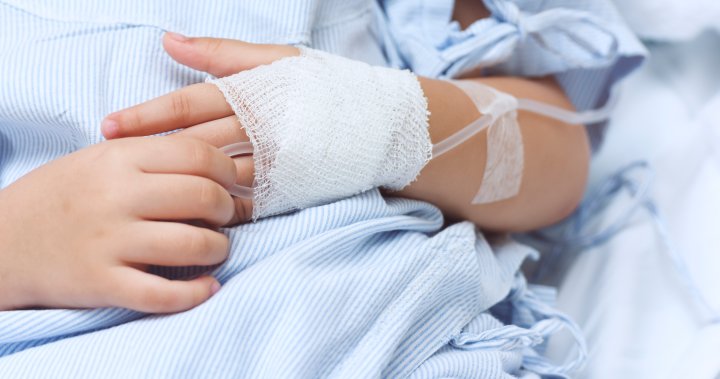
For 80% of childhood cancer survivors, serious health risks follow: study
Global News
By the age of 45, more than 80 per cent of childhood cancer survivors will grapple with serious or life-threatening effects stemming from their treatments.
By age 45, more than 80 per cent of childhood cancer survivors will grapple with serious or life-threatening effects stemming from their treatments. These repercussions range from heart disease to colorectal and breast cancer, according to a recent Canadian study.
The study, published Monday in the Canadian Medical Association Journal (CMAJ), found that adult survivors of childhood cancer are at elevated risk of sickness and death compared to the general population.
The risk of colorectal cancer is two to three times higher than for the general population. Additionally, females who received chest radiation therapy during childhood have a breast cancer risk similar to individuals with a genetic mutation predisposing them to the disease.
“I think people believe that you treat a child with cancer, you cure them, and then it’s fantastic and that we move on,” said Dr. Paul Nathan, co-author of the study and an oncologist in the division of haematology and oncology at SickKids in Toronto.
“But the problem is we cure them with pretty heavy chemotherapy or radiation or surgery or transplants, often a combination that has long-term problems as a consequence,” he told Global News.
Around 1,000 children get cancer every year in Canada, according to a 2021 study by the Public Health Agency of Canada (PHAC). But almost 84 per cent of children survive a cancer diagnosis after five years.
Although the survival rate is high, Nathan said, children are particularly vulnerable to cancer treatment because their bodies and organs are still developing. Chemotherapy and radiation, crucial though they may be, can trigger long-term side effects that manifest years later. Despite this, Nathan noted that many cancer survivors may remain unaware of these potential complications.
The Ontario-based researchers said they were well aware of the challenges surrounding follow-up screenings after childhood cancer treatments, which is why they decided to look at data to see how many people were adhering them.

 Run 3 Space | Play Space Running Game
Run 3 Space | Play Space Running Game
 Traffic Jam 3D | Online Racing Game
Traffic Jam 3D | Online Racing Game
 Duck Hunt | Play Old Classic Game
Duck Hunt | Play Old Classic Game

















